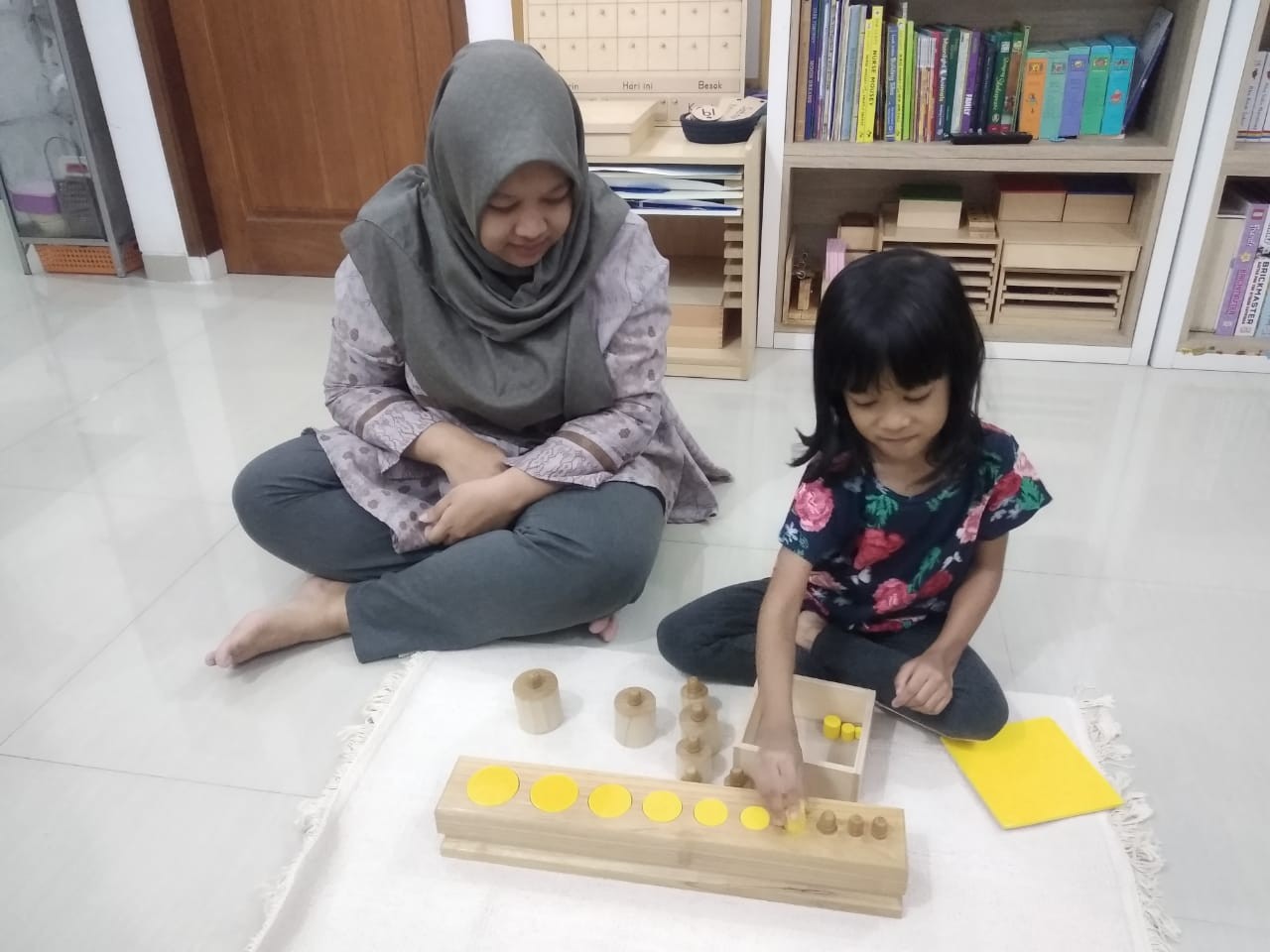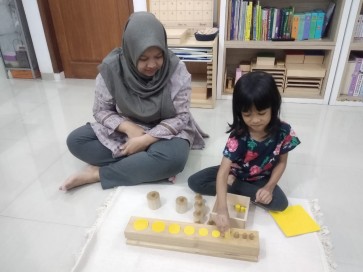Popular Reads
Top Results
Can't find what you're looking for?
View all search resultsPopular Reads
Top Results
Can't find what you're looking for?
View all search resultsParents taking active role in children's early education
To get their children off to a good start, some parents go the extra mile by taking a diploma course on early childhood education, because they believe most of life's values are most effectively taught at home rather than in school.
Change text size
Gift Premium Articles
to Anyone
O
ne fine afternoon at a home in Beji, Depok of West Java, 4-year-old Khaylila decided she wanted to play with a spoon and bowl. Her mother then prepared a bowl of corn kernels. The game was to move the corn kernels from one bowl to two smaller bowls of identical size. Khaylila carefully spooned the kernels while observing the height of kernels filling each bowl. Her mother silently watched, keeping intervention and distraction to a minimum.
“This exercise is not only useful for practical life but also teaches children the mathematical concept of division without any explaining, because they experience the concept themselves,” said the mother, Nafila Rahmawati.
Nafila is not the only one finding the precursor step important and helpful. Martha Iriana, a mother of three living in Kelapa Gading, North Jakarta, explained her experience of teaching her first two sons writing with different approaches. Joshua, 9, learned to write letters directly with a pencil. Meanwhile, the 7-year-old Jason started by running his fingers over a sandpaper letter, recognizing the shape of the letters first.
“The later approach is easier and less stressful for both the teacher and the child, because the child is shown the abstract concept in concrete material. Not to mention the pinching exercise to prepare the grip muscle before using a pencil,” said Martha, who applies the same method with her youngest child, 4-year-old Jonathan.
Children come with no manual. These young parents certainly went the extra mile to take charge of their children’s education, particularly in the early formative years. Nafila and Martha took a diploma in early childhood education (ECE) after becoming parents. Twenty-nine-year-old Nafila went to law school, while 37-year-old Martha is a businesswoman.
With plenty of schools to choose from, raising children in Jakarta seems easy today. But Nafila and Martha think many if not most of life's values are best and most effectively taught by them rather than teachers at schools.
“Children spend most of their time at home, so parents have direct influence on them. I send all three to schools because of my limited time and energy. But at home, it’s my responsibility to support their personal growth,” Martha said, adding that she got a full understanding on child development through the Montessori diploma program.


















